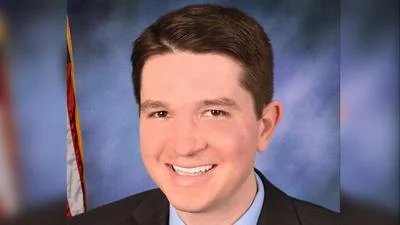Rep. Blaine Wilhour
Rep. Blaine Wilhour
Illinois state Rep. Blaine Wilhour (R-Effingham) didn’t need an Illinois Policy Institute (IPI) report to tell him about an issue problem he’s been pushing to address change since arriving in Springfield.
“We need to get to a point where we are incentivizing people to work instead of not work,” Wilhour told the East Central Reporter of his motivation for cosponsoring House Bill 3273, which would amend the Illinois Public Aid Code to mandate that the Department of Human Services “not seek to renew or extend any federal waiver of the 3-month time limit or work requirements for able-bodied adults without dependent children who apply for or receive benefits under the Supplemental Nutrition Assistance.”
More than six-months after he introduced the legislation, the bill remains stuck in the House Rules Committee, but Wilhour is hoping IPI’s findings might play a role in changing that.
Since the end of the recession, Illinois tops all neighboring states for highest percentage of residents now receiving SNAP benefits, or food stamps, according to IPI. And at 13.63 percent, the state only trails Pennsylvania (13.64) for highest overall percentage in the country.
In addition, over the last eight years the total number of individuals receiving food stamps in Illinois has climbed by 2.3 percent, with all of the increase coming at the same time that Michigan, Indiana and Wisconsin have all experienced enrollment decreases.
“I think that speaks to the biggest problem we have, which is the lack of opportunity and jobs coupled with the government’s willingness to extend even greater benefits to those not working,” Wilhour added.
But Wilhour argues the problem hardly begins and ends there.
“I would be curious to see how many of those people that are on these benefits aren’t even citizens of Illinois,” he said. “We extend a lot of benefits to people without requiring a lot of information in return. We need to be doing income checkups more often to make sure people are qualified for these benefits. Yes, it’s one of the essential duties of government to make sure we’re helping people that can’t help themselves but we need to be vigilant in making sure that these programs are not being abused.”



 Alerts Sign-up
Alerts Sign-up